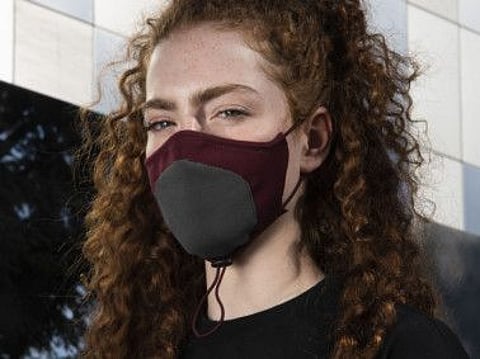Open call for design innovations amid coronavirus pandemic
Global Grad Show’s open call to address the collateral issues of COVID-19 closes April 2

From disrupting health care and travel to forcing the global community to self-distance and work from home and challenge present day models of health services and human behaviour, the novel coronavirus has changed life as we know it.
Bleak as it may be right now, we need to respond with inspiration and innovation to re-build, restructure, re-learn and grow from the crisis.
A leading social impact innovation platform for graduate students across the world, the Global Grad Show, held in partnership with Investment Corporation of Dubai (ICD), and supported by ARM Holdings and Dubai Culture, is extending its efforts beyond its yearly programme to announce an open call to the global academic network looking for solutions to COVID-19 collateral issues.
“The challenges we face in the 21st century are inherently global. Like climate change, pandemics such as COVID-19 know no borders and threaten us all,” says Brendan McGetrick, Head of Curation of the Global Grad Show and Curative Director of The Museum of the Future.
“In announcing this initiative, we hope to channel the immense creativity of the world’s universities toward the challenge of COVID-19 and its various medical, economic and social dimensions. In doing so, we hope to show the world that even our gravest threats present opportunities for innovation and community,” he added.
The proposals must identify and address a critical issue surrounding COVID-19, which can range from statistical disease-prediction models and enhanced patient-screening methods, to enhancing the efficiency of home-quarantine and health care solution find Mitigate contagious behaviours.
A team of health professionals and innovation specialists will support the selection and development of chosen projects. Any selected proposal will be funded through prototyping and testing. Additionally, creator(s) of a selected proposal will be awarded the tuition fee of their current studies, or equivalent scholarship for the department of selected professor(s).
Global Grad Show encourages all graduates, undergraduates and professors of all academic backgrounds and universities around the world to submit their proposals by the 2nd of April 2020. Any selected project will be announced by April 16. For more information visit www.globalgradshow.com.
__________
Recently named as one of the key initiatives under the Dubai Culture & Arts Authority’s plan to realise its vision of evolving Dubai into a global hub for culture and innovation, Global Grad Show has, over the past five editions, covered the fields of design, science, technology and engineering.
The response to this open call can be as varied as the issues presented by virus. To inspire students and professors to come up with their unique solutions, here we share some of projects showcased at Global Grad Show.
MasSpec Pen
Developed by Livia Eberlin of The University of Texas at Austin, the device releases a tiny water droplet to suck back chemicals from inside the suspicious living cells. The pen is then plugged into a mass spectrometer, which can tell doctors whether they are looking at healthy tissue or cancer.
Pureknit
Developed by Quang Vinh Nguyen of ECAL/ University of Art and Design Lausanne, Pureknit is a reusable anti-pollution mask made with minimal material waste. The mask is made with 3D knitting technology, meaning that its production generates almost no material loss by limiting its assembling operation.
Hale
Mariam Ibrahim of if the American University in Cairo has developed a series of garments designed to improve a patient’s sense of well-being during their hospital stay. The range includes a sensor gown, which unobtrusively tracks the patient’s blood oxygen level, body temperature, position and pulse.
Sterilux
ECAL/ University of Art and Design’s Jordane Verent has designed an innovation in sterilising medical tools that uses up to 1,000 times less water and 100 times less energy than conventional methods. The design uses the chemical composition of ambient air together with UV lights to generate, and then destroy, the sterilisation gas ozone.



